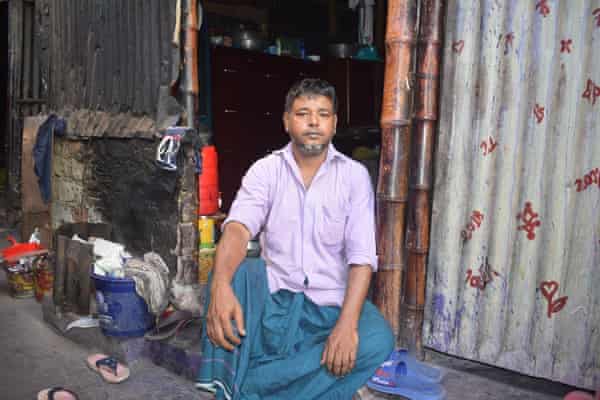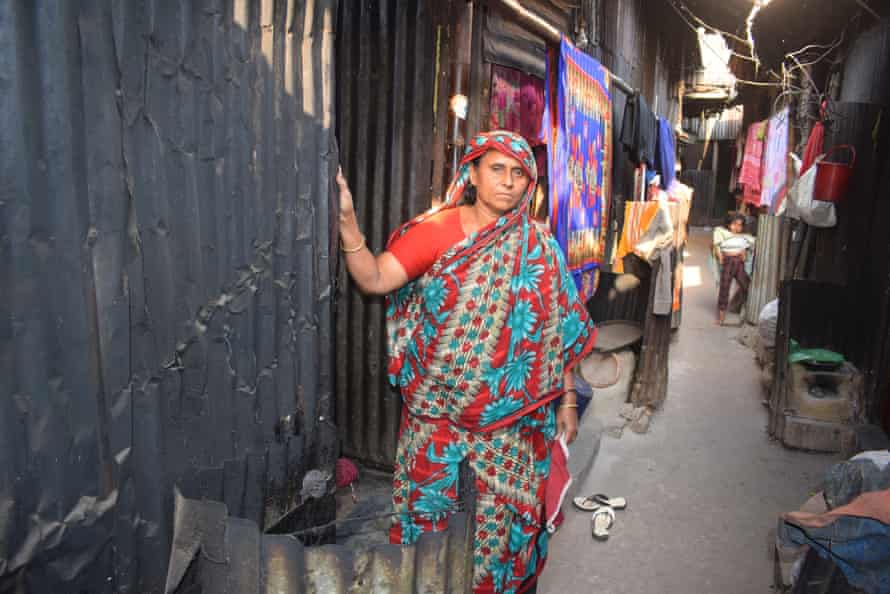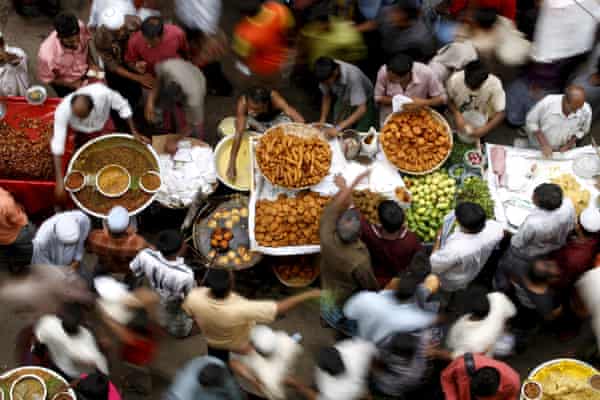‘I thought I’d get a good job but instead I had to ride rickshaws’
Habibur Rahman, 48, rickshaw rider
His family lost their land in Khulna, the third-largest city in Bangladesh, plunging them into financial problems that pushed Habibur to leave for the capital, Dhaka, at the age of 18 to find work. He lives in the Kalyanpur slum.

“I thought I’d get a good job but instead I had to ride rickshaws or work as a day labourer and I’m still doing that today. After independence there was so little work in towns and villages, and so many struggled for money, so when we look back on these 50 years, we see that Bangladesh has come a long way.
“People have been employed, mostly in Dhaka but also in the villages. There’s been a lot of development on the roads. Bangladesh is moving forward on the path to prosperity but the big problem is that everything is centred around the capital.”
‘Once, women could rarely go out but now many work outside’
Shahida Begum, 65, domestic worker
A relatively comfortable rural existence ended nine years ago for Shahida Begum when her village was flooded and her family had to go to Dhaka to find work.
“Everything in Bangladesh has improved now, compared with before. Everyone has a mobile in their hands – I can talk to whoever I want to. I hear on the TV news they call it Digital Bangladesh. Once, women could rarely go out but now many women work outside. Husband and wife earn together to move the family forward.
“The problem is villages are better than cities, yet we are forced to come from the village to the city. The village has abundant resources and they need to be utilised. People have to take the initiative to return to the village. I want everyone to be able to make a living by working in their own village.”

‘Climate shocks are an escalating threat’
Sohara Mehroze Shachi, student
Sohara Mehroze Shachi is studying for a master’s degree in environmental change and management, focused on the climate crisis, after years working in the development sector.
“The government, NGOs and the development sector have all played their part in trying to help the country adapt to climate shocks but it’s pretty obvious you can’t adapt forever to climate change now and going ahead it will be how to deal with this escalating threat.
“The country so far has done a pretty good job dealing with it, but it definitely needs more help and more ‘out-of-the-box’ thinking. I think there’s a lack of ambition. It’s not just about one country. It seems like [what’s being done] is not enough – the gravity is not felt at all levels equally. Vulnerable countries are harping on about it but I’m not sure how far that’s reached in the countries that need to be more proactive.”
‘There have been huge achievements by Bangladeshi photographers’
Abir Abdullah, 50, photographer
An award-winning photojournalist and former principal of the Pathshala media institute in Dhaka.

“It’s amazing to see how things have developed, especially over the past 20 years. There have been huge achievements by Bangladeshi photographers. It’s quite encouraging and fascinating to see work of photographers from Bangladesh now seen internationally, winning the top awards in photojournalism.
“Of all the sectors that have developed, it has played a leading role trying to address social and political issues. As a documentary photographer, I would like to see more freedom of expression where artists, photographers, writers and cartoonists can express their own views. If you don’t have freedom of expression, you can’t practice your creativity.

Average Rating